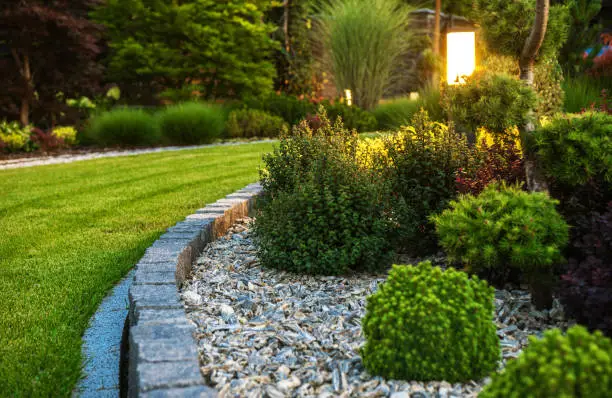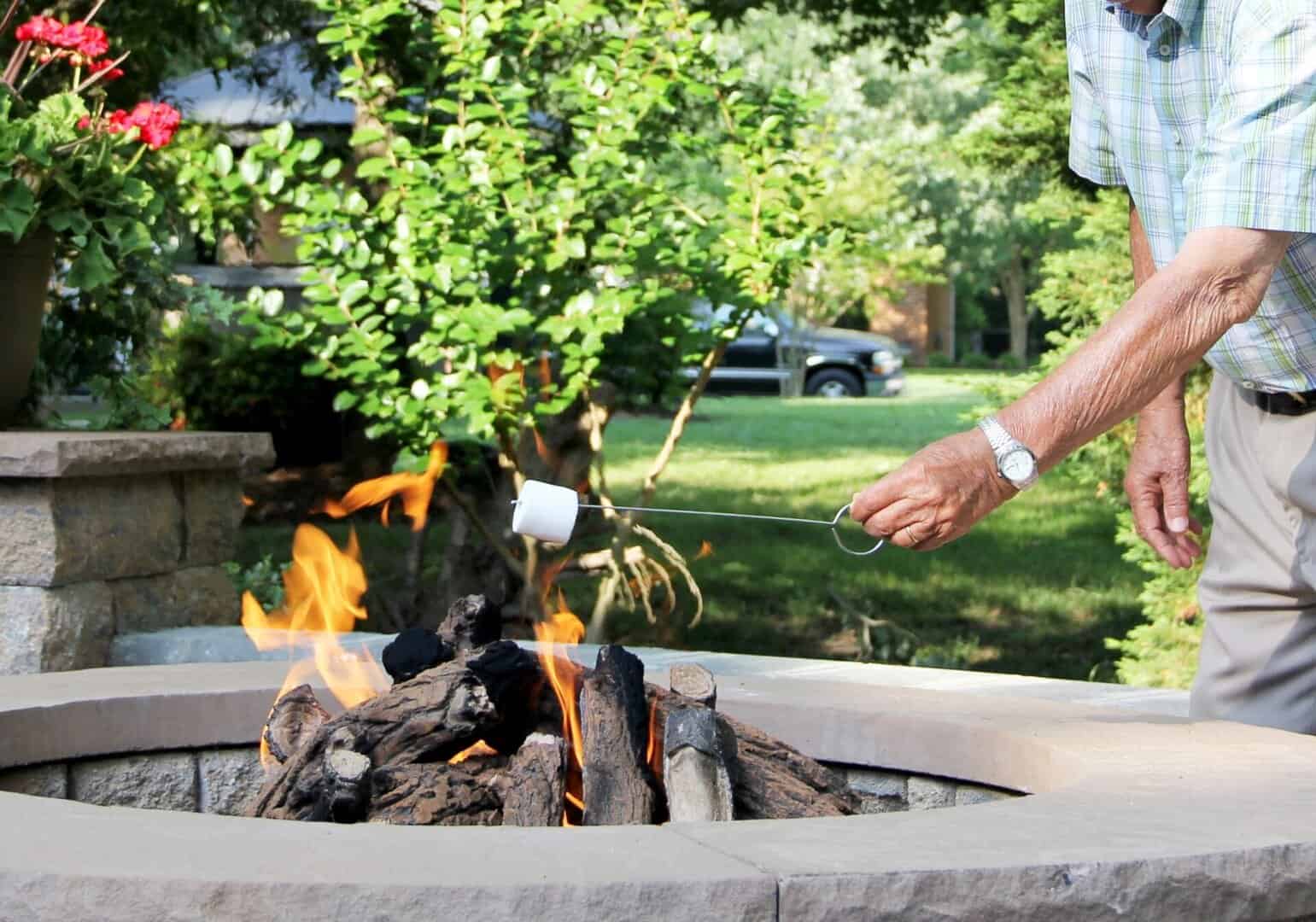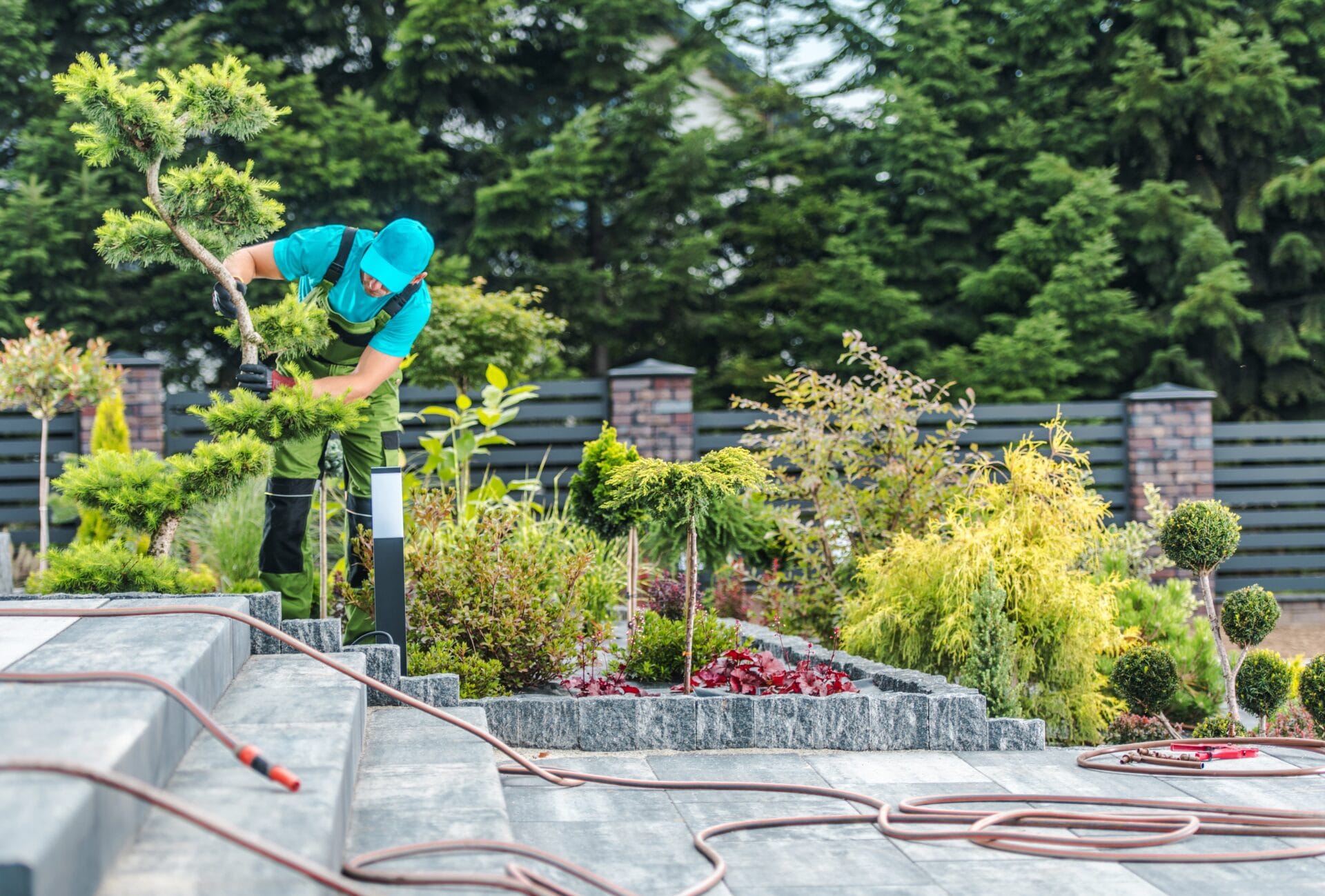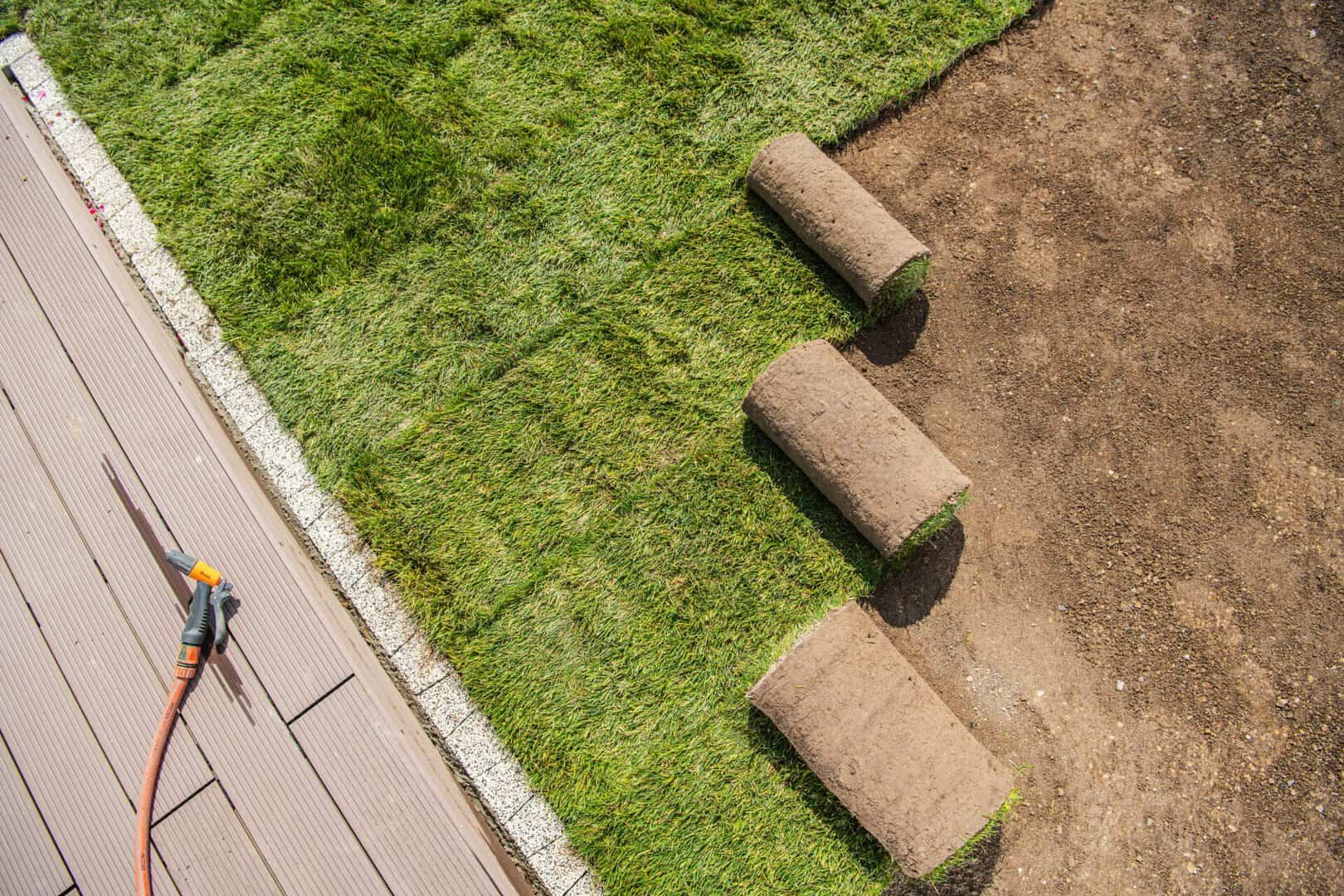The benefits of landscaping go far beyond enhancing the aesthetic appeal of your outdoor space. While a well-designed landscape boosts curb appeal and property value, there are numerous hidden advantages that often go unnoticed. From improving mental health and reducing energy costs to supporting local ecosystems, landscaping can positively impact your daily life in ways you may not have considered. In this article, we’ll explore 10 hidden benefits of landscaping that demonstrate its value beyond mere visual beauty.
Key Takeaways
- Landscaping boosts property value: A well-designed and maintained landscape can increase your home’s curb appeal, making it more attractive to potential buyers and raising its market value.
- Environmental and energy benefits: Thoughtful landscaping can reduce energy costs by providing natural shade and wind protection while promoting environmental sustainability through air purification and water conservation.
- Health and well-being: Landscaping enhances mental and physical health by creating relaxing green spaces, encouraging outdoor activity, and improving air quality around your home.
- Customized outdoor living: Landscaping offers opportunities for personal expression, allowing you to create outdoor spaces that reflect your lifestyle, whether for relaxation, entertaining, or enjoying nature.
Why Is Landscaping Important?
Landscaping is a vital aspect of home improvement and environmental management. It goes beyond the decorative element, playing an essential role in how a property functions and feels. A well-thought-out landscape can influence your daily life, making your home a more enjoyable, comfortable, and sustainable place to live.
Here are some key reasons why landscaping is important:
- Environmental Impact: By incorporating trees, shrubs, and other plants into your landscape, you help reduce the effects of urban heat islands, improve air quality by absorbing pollutants, and contribute to water conservation through strategic planting and irrigation systems.
- Energy Efficiency: A well-designed landscape can significantly reduce your home’s energy consumption. Trees and shrubs can provide natural shade, keeping your home cooler in the summer, while acting as windbreaks in the winter to reduce heating costs.
- Enhanced Mental Health: Studies have shown that spending time in nature or even just being around green spaces can reduce stress, anxiety, and depression. A landscaped yard creates a serene, relaxing environment that enhances mental well-being.
- Curb Appeal and Property Value: First impressions matter, and a beautifully landscaped yard can make a huge difference in how potential buyers perceive your home. A well-maintained, attractive yard adds significant value to your property.
With landscaping being so crucial to both the functional and aesthetic aspects of a home, it’s no wonder that more and more homeowners are turning to professional landscape contractors to help them achieve their outdoor goals.
10 Hidden Benefits of Landscaping
1. Increased Property Value
One of the most immediate and tangible benefits of landscaping is its ability to increase your property’s value. Curb appeal is a major factor in a home’s perceived value, and a beautifully landscaped yard gives potential buyers a positive first impression. A well-maintained yard with features like mature trees, colorful plants, and professional hardscapes can boost a home’s value by 5% to 20%.
Homes with high-quality landscaping tend to sell faster and for higher prices compared to homes with less appealing exteriors. Landscaping adds aesthetic appeal, making your home stand out in a competitive real estate market. Even small landscaping improvements like fresh mulch or a tidy lawn can make a big difference.
2. Energy Efficiency
Landscaping can also improve your home’s energy efficiency. Strategic planting of trees and shrubs around your home can drastically reduce your heating and cooling costs. For example, shade trees can block sunlight from hitting your home, keeping it cooler in the summer and reducing the need for air conditioning.
In the winter, evergreens and dense shrubs can serve as windbreaks, shielding your home from cold winds and reducing heat loss. By positioning these plants around your home, you can create a more energy-efficient property, ultimately saving money and reducing your environmental footprint.
3. Environmental Benefits
Landscaping is an effective way to promote sustainability and improve the environment. Plants act as natural air filters, absorbing pollutants and releasing oxygen, which improves air quality. Additionally, thoughtful landscaping can help with water conservation, especially in regions that experience droughts. Xeriscaping, for instance, uses drought-tolerant plants and efficient irrigation techniques to reduce water use while maintaining a visually appealing yard.
Other environmental benefits include:
- Soil Health: Plants, especially trees and shrubs, help stabilize the soil, reducing erosion and protecting against flooding.
- Biodiversity: By incorporating native plants, you can create a habitat for birds, insects, and other wildlife, supporting local ecosystems.
- Carbon Sequestration: Trees and plants absorb carbon dioxide and store it, helping to reduce the amount of CO2 in the atmosphere.
A well-planned landscape not only enhances your home but also contributes positively to the environment.
4. Mental and Emotional Well-being
Landscaping can have a profound impact on your mental and emotional health. Numerous studies have shown that spending time in nature or simply being in a well-landscaped environment can reduce stress, anxiety, and depression. The presence of greenery and outdoor spaces encourages relaxation, meditation, and mindfulness, all of which contribute to better mental health.
For example, adding a tranquil garden or water feature to your yard can create a peaceful retreat where you can unwind and enjoy nature’s beauty. The simple act of gardening, whether it’s planting flowers or tending to a vegetable garden, also promotes physical activity and can serve as a therapeutic outlet for stress relief.
Moreover, landscaping encourages outdoor living. A functional, beautifully landscaped yard invites you to spend more time outdoors, soaking up sunlight, breathing fresh air, and engaging in physical activities—all of which improve your overall well-being.
5. Outdoor Living and Social Spaces
Landscaping isn’t just about beautifying your property; it also enhances your outdoor living experience. Well-designed landscapes can include decks, patios, fire pits, outdoor kitchens, and seating areas, transforming your yard into a functional extension of your home. These spaces provide opportunities for entertaining guests, hosting family gatherings, or simply relaxing outside with a good book.
Creating dedicated outdoor spaces increases your property’s usability, allowing you to enjoy your yard throughout the year. Whether you’re gathering around a fire pit on a cool evening or grilling with friends on your deck during the summer, a thoughtfully designed landscape enhances your outdoor living experience.
6. Social and Community Benefits
Landscaped spaces aren’t just beneficial to individuals—they also contribute to social well-being and community cohesion. Public parks, green spaces, and well-landscaped neighborhoods foster a sense of community by providing areas for social interaction, outdoor activities, and relaxation. These areas become gathering spots for families, friends, and neighbors, encouraging outdoor play, exercise, and bonding.
For homeowners, landscaped yards offer similar benefits. A well-maintained yard with comfortable seating areas, gardens, and outdoor features creates a welcoming space for friends and family to gather. Landscaping enhances your property’s social function, making it more enjoyable for both you and your guests.
7. Wildlife Habitats
Landscaping can support local ecosystems by providing natural habitats for wildlife. Planting a variety of trees, shrubs, and flowers can attract birds, butterflies, and pollinators like bees, contributing to biodiversity. Native plants, in particular, are well-suited to the local environment and are more likely to support local wildlife.
Creating a wildlife-friendly landscape not only helps the environment but also brings nature closer to your home. Imagine watching birds nest in your trees or butterflies fluttering around your flowerbeds—it’s a wonderful way to enjoy nature without leaving your yard.
8. Noise Reduction
One often-overlooked benefit of landscaping is its ability to reduce noise pollution. Dense shrubs, trees, and hedges can act as natural sound barriers, minimizing noise from busy roads, neighbors, or other sources. This is especially valuable for homeowners living in urban or suburban areas where noise can disrupt the peace and quiet of their outdoor spaces.
Strategically placing trees and bushes around your property can create a more serene environment, allowing you to enjoy your yard without the intrusion of outside noise.
9. Health Benefits
Landscaping promotes a healthy lifestyle by encouraging outdoor activities like walking, gardening, and playing with family members. Engaging with your landscape provides physical exercise, which benefits cardiovascular health and overall fitness. Gardening, in particular, is a great way to stay active and get your hands dirty while nurturing plants and flowers.
Beyond physical health, landscaped environments also improve respiratory health by improving air quality and reducing allergens. Trees and plants filter out dust, pollen, and pollutants, creating cleaner air for you and your family to breathe.
10. Personal Expression and Customization
Your landscape is an extension of your home, and it’s an opportunity to express your personal style. Whether you prefer a minimalist, modern design with clean lines and hardscapes or a lush, traditional garden filled with blooming flowers and meandering pathways, landscaping allows you to create a space that reflects your personality.
With a wide variety of plants, materials, and design elements to choose from, you can customize your landscape to suit your tastes and needs. The ability to create a unique outdoor space tailored to your lifestyle is one of the greatest joys of landscaping.
Hire a Landscape Contractor
While DIY landscaping can be rewarding, hiring a professional landscape contractor ensures that your vision is executed with expertise and precision. Professionals have the knowledge and experience to design landscapes that are both beautiful and functional, taking into account factors such as soil type, plant compatibility, irrigation systems, and hardscapes.
If you’re in the Los Angeles area, consider working with All County Landscape Hardscape. We specialize in landscaping and hardscaping, providing services such as the installation of retaining walls, decks, fire pits, walkways, stepping stones, outdoor barbecues, and pool decks. Our team of experts is committed to helping you create a stunning outdoor space that enhances your property’s value, energy efficiency, and aesthetic appeal.
Whether you’re looking to increase your property value, create an outdoor entertainment area, or simply enjoy a more beautiful and sustainable yard, landscaping offers a multitude of benefits. Let All County Landscape Hardscape bring your landscaping dreams to life.
Frequently Asked Questions
How does landscaping increase property value?
Landscaping can increase property value by making your home more appealing to potential buyers. Well-designed landscapes that include mature trees, flowering plants, and attractive hardscapes like patios or walkways create a positive first impression. In some cases, landscaping can boost a home’s value by up to 20%, making it one of the most cost-effective ways to improve a property.
Does landscaping have social benefits?
Yes, landscaping has significant social benefits. It creates inviting spaces for social gatherings, encourages outdoor activities, and can enhance neighborhood aesthetics. Landscaped parks and gardens foster social interactions, improving community well-being and providing areas for families and friends to bond.
How can landscaping improve the quality of life?
Landscaping improves quality of life by creating beautiful, functional outdoor spaces that encourage relaxation, recreation, and outdoor living. A well-maintained yard provides a peaceful environment, reduces stress, and promotes mental and physical well-being. Additionally, landscaping can enhance energy efficiency, reduce noise pollution, and contribute to a healthier environment.




